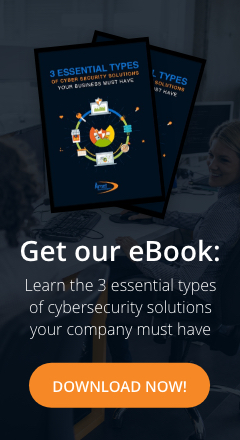More and more businesses are turning to cloud-powered solutions for their enterprise needs, as these solutions tend to be flexible, affordable, and just as powerful as most traditional business solutions. In fact, many small- to medium-sized businesses (SMBs) nowadays are fully cloud-powered, meaning all of their data and transactions go through the cloud.
Working on the cloud means your employees can work even when they’re on the go; this is one popular reason why many businesses have already made the shift. When migrating to the cloud, however, you should first consider some challenges that you might face, so that you can prepare accordingly.
Here are some cloud migration challenges that you should not ignore:
Downtime
Downtime refers to network or service outages, which can be quite harmful to your data if ample contingencies aren’t made. In the migration process, downtime tends to occur midway through data migration. Should one occur, it will likely render the enterprise inoperable — business processes will be disrupted and you may have some trouble reconciling financial and transactional records afterward.
To avoid downtime, most businesses choose to migrate data during slow hours so as to minimize disruptions, but this might not be possible for businesses that serve clients round-the-clock. The solution for these types of businesses is to set up a temporary environment where all business applications and services can be hosted, so that the business can remain operational without disruption.
Reputable managed IT services providers (MSPs) can provide a temporary virtual office or backup setup for businesses undergoing data migration. This is great for businesses that deal with a lot of data and limited bandwidth, as they tend to experience longer migration periods, and are, therefore, prone to longer periods or more instances of network downtime.
Data security and storage integrity
Data security is also a key consideration during data migration. Cyberthreats tend to get magnified in the context of data migration because data is vulnerable when it is being moved from your physical server to the cloud. This is because neither your business’s network security nor the cloud services provider’s security can completely cover your data at all times during transfer.
For this reason, data migration experts will always advise their clients to sit down and have a thorough planning session prior to any migration activity, just to be sure. Expect to discuss migration strategies, especially if your business has a lot of sensitive data to move to the cloud. The strategies often involve full and double backups, a secondary network provider, monitoring assignments, security updates, and other ways that will help lower overall risk.
Interoperability
Interoperability refers to the ability of systems to work with one another. Before migrating to the cloud, businesses should first make sure that the cloud’s software is compatible with the company’s on-site applications. This should be one of the first questions to be resolved before the migration process, as it is exponentially more difficult and more expensive to address this problem when it’s already there.
Adaptability
Many businesses transition from their current IT setup to a cloud-based one out of necessity; many proprietary SMB-targeted business solutions face obsolescence, and it is simply prudent for businesses to consider moving to what may be the long-term budget-friendly solution out there.
Clearly, adaptability challenges — which are related to interoperability issues — are also present during data migration. The question now is this: can my company adapt to new software? Would this require staff training and perhaps improvements to existing hardware?
The good news with current cloud solutions is that many of the popular ones are user-friendlier than ever, and are easy to adapt. Developers care about the user experience nowadays, which is why most contemporary cloud-based applications are designed to look nice while being easy to decipher.
Of course, an excellent way to get around these cloud challenges would be to migrate through a reputable MSP like Arnet Technologies. We provide a host of solutions that will help ensure that your data migration is easy, coherent, and secure.
Still have questions about cloud migration? Work with Columbus’ most reliable MSP for your cloud needs. If you have a problem, we have the answer. Call today to schedule your appointment!

